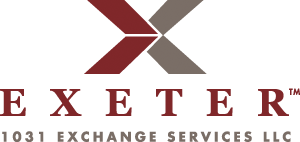Qualified Intermediaries Are Not Created Equal
Investors generally think 1031 Exchange Qualified Intermediaries are the same — but they are absolutely not created equal — and the differences can be significant and critical. Did you know there is no regulatory or governmental oversight of Qualified Intermediaries; that only about 1% are licensed, regulated, audited and have minimum equity capital requirements? That is very scary when you consider how much money they are holding for investors’ 1031 Exchanges.
Numerous Qualified Intermediaries have failed over the years, and the vast majority of these failures could have been prevented had there been regulatory or governmental oversight and audit of the failed Qualified Intermediaries.
Qualified Intermediaries are a crucial part of successful 1031 Exchanges and have three very important responsibilities. They prepare the documents to properly structure the investor’s 1031 Exchange, work with the investor and their advisors to ensure a successful and compliant 1031 Exchange transaction and — arguably — the most important responsibility — hold and safeguard the investors’ 1031 Exchange funds.
Investors should be diligent when evaluating and selecting a Qualified Intermediary since they hold significant amounts of 1031 Exchange funds. (See article titled "Choosing a SAFE, SOUND and SECURE Qualified Intermediary" and article entitled "Qualified Intermediaries Are Not Created Equal ."
Regulatory Oversight Ensures Safety and Soundness
Oversight by a regulatory agency or governmental body, such as a State Division of Banking or Department of Financial Institutions, Office of the Comptroller of the Currency or the Federal Reserve Board, ensures that the Qualified Intermediary is operating in a safe, sound and secure manner, which is important since they have such tremendous fiduciary duties and responsibilities. Most Qualified Intermediary failures could have been prevented through proper oversight and audit.
Qualified Trust Accounts Protect Investors’ Funds
Qualified Intermediaries should deposit, hold and safeguard investors’ 1031 Exchange funds in separate, segregated Qualified Trust Accounts or Qualified Escrow Accounts. The court ruled in the LandAmerica 1031 Exchange bankruptcy case that the 1031 Exchange funds were corporate funds and subject to creditor claims since the funds were not held in a Qualified Trust Account as permitted by the Treasury Regulations. Qualified Trust Accounts classify 1031 Exchange funds as fiduciary (client) funds and not corporate funds in the event the Qualified Intermediary files for bankruptcy.
Bonding, Insurance and Equity Capital Provide Financial Strength and Stability
Qualified Intermediaries’ should carry significant fidelity bond and errors and omissions insurance coverage and maintain substantial equity capital as an added and essential safety net against errors or losses in a 1031 Exchange. Investigate the methods, structures and processes used to track, monitor and protect 1031 Exchange funds through internal controls, checks and balances.
There’s NO Substitute for Experience
Investors need more than just a transaction processor. They should be able to turn to a Qualified Intermediary for advice and guidance on best practices in structuring and administering a 1031 Exchange. Interview prospective Qualified Intermediaries to ensure they have the technical depth, experience and expertise necessary due to the highly complex and technical nature of 1031 Exchange transactions. Investors need knowledgeable support, so the Qualified Intermediary should be advisory and consultative in nature and be willing to work with the investors and their advisors to ensure a successful and compliant 1031 Exchange.
Exercising Diligence Affords Protection
It is not the size of the Qualified Intermediary that matters, but how they manage and control risk and protect the investors’ 1031 Exchange. It is critical to understand the importance of regulatory oversight, experience, expertise, internal controls and processes, quality measures, equity capitalization, and insurance. Bring this knowledge to bear to help investors successfully execute a 1031 Exchange transaction. Everyone will rest easier knowing the investors’ goals have been safely achieved.
State of Washington Required Disclosures
"Washington state law, RCW 19.310.040, requires an exchange facilitator to either maintain a fidelity bond in an amount of not less than one million dollars that protects clients against losses caused by criminal acts of the exchange facilitator, or hold all client funds in a qualified escrow account or qualified trust."
